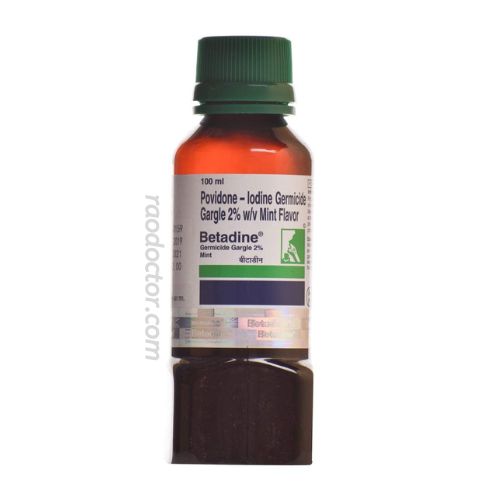
What is Acute Necrotizing Ulcerative Gingivitis [ANUG]
Have you ever noticed anyone having swollen gums with bleeding points and foul-smelling breath? Well, this can be what we call Acute Necrotizing Ulcerative Gingivitis, a condition in which the gums swell and decay or rot.
Acute necrotizing ulcerative gingivitis (ANUG) is a rare, but serious form of gum disease. Left untreated, it can cause the gums to shrink and pull away from the teeth, which can lead to tooth loss and even irreversible bone loss in your jaw.
The disease can occur at any age, but it’s more common among young adults with poor dental hygiene. ANUG causes red, swollen gums that may bleed easily and have sharp or uneven edges. You may also experience pain while eating hot or cold foods, as well as an unpleasant metallic taste in your mouth.
Left untreated, the condition can progress to involve deeper layers of tissue and lead to serious complications such as periodontal abscesses and dental sepsis.
Signs and Symptoms of Acute Necrotizing Ulcerative Gingivitis
- Swelling or redness in your gums – This is the most common sign of ANUG. It’s likely your gums will also be very tender when you brush or floss.
- Bleeding when brushing or flossing – You may notice bleeding even when you brush gently and for just a short time after. This is a sign that there’s significant inflammation in your gums.
- Sharp or uneven edges when flossing – When your gums separate from the teeth, they may expose the underlying root surface and cause the gums to be very sensitive.
- Unpleasant metallic taste in your mouth – This is a sign that your gums are inflamed or infected.
- Bone loss in your jaw – If the infection spreads to the bone, you could lose bone in your jaw.
- Swelling in your face and/or neck – A high fever is also a sign of bone infection in ANUG.
- Pain when eating hot or cold foods – This is often due to sensitivity in your gums or exposed root surfaces.
- Other symptoms related to your teeth and mouth – Note that the infection can spread to other nearby tissues, so you may notice other symptoms not listed here.
You may notice one or more of the following signs of ANUG: –
Other Symptoms of Acute Necrotizing Ulcerative Gingivitis
In addition to the signs listed above, you may notice one or more of the following symptoms of ANUG: – Fever – If the infection spreads to your bloodstream, you may have a high fever accompanied by chills and sweats. – Swelling in your face and/or neck – You may also notice swelling in your face or on one side of your neck. – Other symptoms related to your teeth and mouth – The infection may also cause other symptoms not listed here, including a foul smell coming from your mouth, difficulty eating, and a change in your voice.
Early Detection and Treatment of ANUG
Early detection and treatment can help you avoid more serious complications of ANUG. First, you should visit your dentist regularly for cleanings and exams. If you notice any signs of ANUG, it’s important to see your dentist right away.
Treatments will vary depending on the severity of your condition. Your dentist may clean and debride [remove] affected tissues, apply antibiotics, or recommend a course of steroids.
In some cases, surgery may also be necessary. You may need to modify your brushing and flossing techniques if you have ANUG.
Precautions to be taken for ANUG
Gums affected by the disease are extra sensitive, so you should brush and floss with great care. It’s also important to visit your dentist for professional cleaning and treatment for ANUG. Your dentist can give you advice on dental hygiene and can prescribe antibiotics if necessary.
Helping your body fight ANUG
If you’re suffering from ANUG, it’s important to take care of your health and avoid worsening the condition. Here are a few tips to keep in mind: –
- Rest – If you’re experiencing pain in your gums or other symptoms of ANUG, you may need to rest until the symptoms subside.
- Diet – Eat soft, non-irritating foods that are easy on your gums, like rice, oatmeal, and yogurt. Avoid foods that are too cold or hot, as well as sweet and acidic drinks.
- Drink plenty of water – When you’re not feeling well, it’s easy to forget to drink enough water. This is especially important if you’re experiencing a fever.
Treatment of ANUG
Treatment of this condition is simple in early stages. In later stages, the dental surgeon may do surgery to remove dead tissues [debridement]. However, if you have got it recently, your family may prescribe these medicines after consultation with him-
- Betadine [povidone iodine] gargles
 in warm water
in warm water - Doxycycline 100 mg twice daily for 7 days
- Metronidazole 400 mg twice daily for 7 days
- Multivitamins containing folic acid and riboflavin
- Oral paste/gel containing metronidazole and chlorhexidine- Metrohex gel is one such combination that is avaiable in India.
Conclusion
To avoid getting ANUG, it’s important to practice good dental hygiene, visiting your dentist regularly. If you do notice any signs of the condition, be sure to see your dentist right away. With the right treatment, you can get your gums healthy again so you can enjoy your favorite foods and maintain optimal oral health.


 in warm water
in warm water